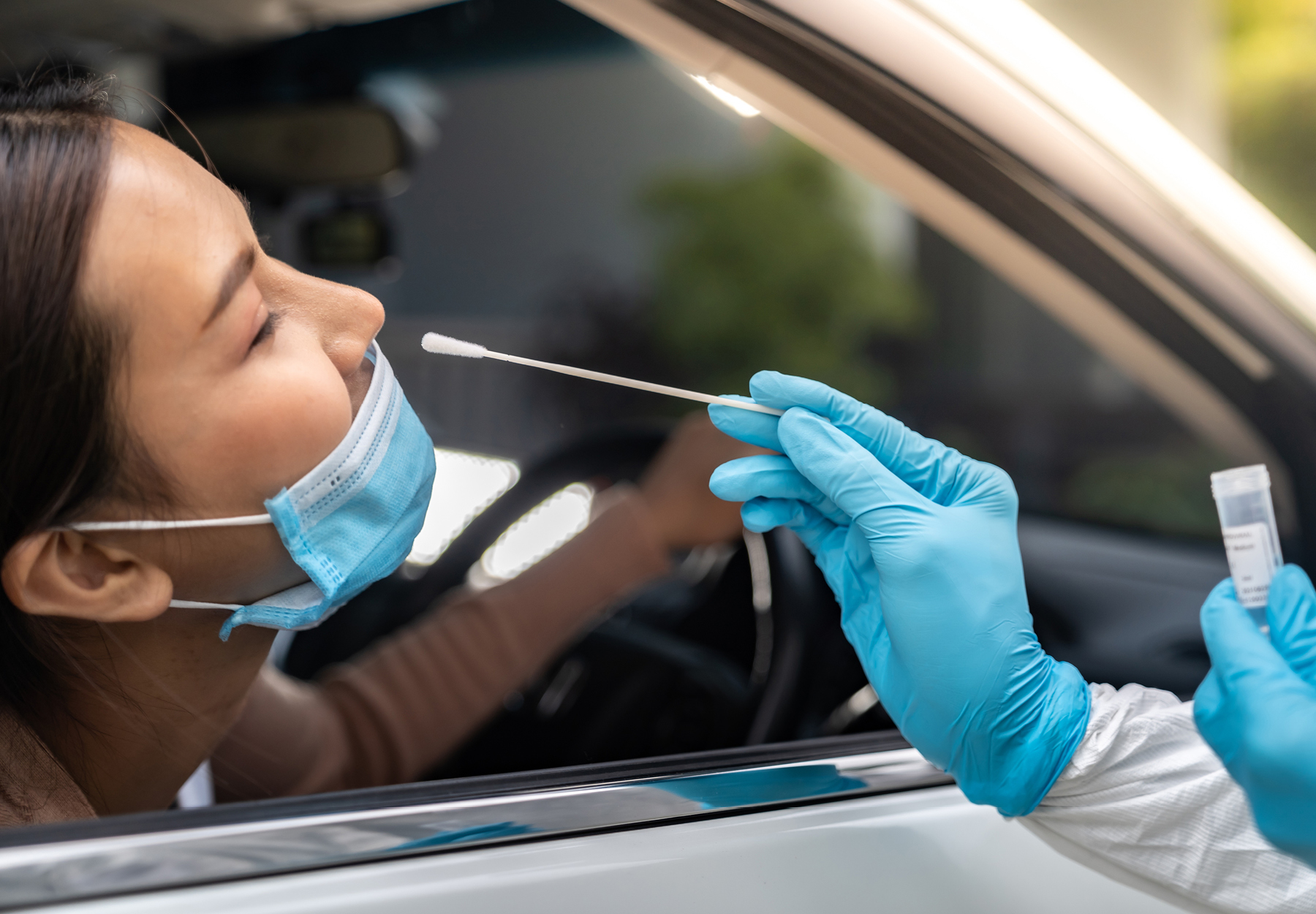Avoiding Improper Use of HCPCS Codes for COVID-19 Test Specimen Collection Fees
One of the biggest danger areas that labs and their billing staffs face in COVID-19 test reimbursement is improper use of HCPCS code G2023.

While demand might have diminished, COVID-19 testing remains a significant business operation for many labs. Ensuring proper reimbursement for such tests thus remains of critical importance. This briefing will cover one of the biggest danger areas that labs and their billing staffs face in this regard: improper use of Level II HCPCS code G2023 for reporting specimen collection.
| HCPCS | Description |
| G2023 | Specimen collection for severe acute respiratory syndrome coronavirus 2 (SARS-CoV-2) (Coronavirus disease [COVID-19]), any specimen source |
Coding of COVID-19 Tests
The Centers for Medicare & Medicaid Services (CMS) establishes Level II codes either when the American Medical Association (AMA) doesn’t establish applicable coding for the service or item, or the agency disagrees with the code the AMA does offer. While “G” codes are usually temporary in nature, some of them have been known to exist for several years. G2023 and its sibling code, G2024—Specimen collection for severe acute respiratory syndrome coronavirus 2 [SARS-CoV-2] (Coronavirus disease [COVID-19]), from an individual in a skilled nursing facility (SNF) or by a laboratory on behalf of a home health agency (HHA), any specimen source—were established for independent laboratory reporting during the COVID-19 public health emergency (PHE). If and when the PHE ends, these codes will no longer be effective.
It cannot be stressed enough that reading a code description may be insufficient to explain how and when a code may be appropriately reported. The misuse of HCPCS G2023 is evidence of this principle. The code has been used incorrectly for billing the routine acquisition of suspect COVID samples, as well as by entities other than independent laboratories. Since the description doesn’t explain it, we need to look to additional references to determine appropriate utilization of the code. Here are some (although not necessarily all) of those key references.
Specimen Sources Relating to HCPCS G2023
The HCPCS G2023 code description indicates that it relates to any specimen source. However, this is not the case. Optum publishes a lay description that clarifies the types of specimens related to the code. For clinical diagnostic laboratories, CMS has created codes that may be reported to identify and reimburse specimen collection for COVID-19 testing. Specimens may be obtained through a variety of sources, such as nasopharyngeal or oropharyngeal swab, nasopharyngeal wash or aspirate, nasal aspirate, or sputum. This reference helps to define and reinforce specimen sources.
Changes to Medicare Payment Policies for COVID-19 Specimen Collection
The March 31, 2020 COVID-19 Interim Final Rule with Comment Period (IFC) stated that CMS changed Medicare payment policies for independent laboratories for specimen collection related to COVID-19 testing during the PHE. Specifically, CMS indicated that a specimen collection fee and associated travel allowance would be paid to independent laboratories for collection of specimens for COVID-19 clinical diagnostic laboratory testing from beneficiaries who are homebound (G2023) or inpatients not in a hospital (G2024). The IFC stated that Medicare enrolled independent laboratories can bill Medicare for the specimen collection fee using one of the two new HCPCS codes, effective March 1, 2020.1
CMS Guidance and FAQs
CMS has also published a rather lengthy document listing FAQs addressing issues arising during the PHE, including questions related to specimen collection for COVID-19 testing. Key questions:
In response to a question about specimen collection fees, CMS indicates that to maximize access of Medicare beneficiaries to COVID-19 testing during the PHE, that it’s changing the Medicare payment rules “to provide payment to independent laboratories for specimen collection from beneficiaries who are homebound or inpatients not in a hospital for COVID-19 testing under certain circumstances.”2
CMS also clarifies that “the Social Security Act (the Act) requires that the Secretary establish a nominal fee for specimen collection for laboratory testing and a fee to cover transportation and personnel expenses (generally referred to as a travel allowance) for trained personnel to collect specimens from homebound patients and inpatients (not in a hospital). The travel allowance is paid only when the nominal specimen collection is also payable” (emphasis added).2
In terms of who can bill, the FAQs note that “Independent laboratories can bill Medicare through their MAC for the specimen collection fee. The specimen collection fee applies if the specimen is collected by trained laboratory personnel from a homebound or non-hospital inpatient and the specimen is a type that would not require only the services of a messenger pick up service. However, the specimen collection fee is not available for tests where a patient collects his or her own specimen.”2
The definition of a homebound or “confined to the home” patient, the FAQs explain, includes when it’s medically contraindicated for the patient to leave the home, there is a normal inability for the patient to leave home, or leaving the home would require a considerable and taxing effort.2
Takeaway: Beware Improper Use of HCPCS G2023
In summary, CMS stresses that a patient must meet the definition of homebound for an independent laboratory to report HCPCS G2023 for specimen collection, with reimbursement equaling $23.46. “We caution providers that are not independent laboratories or who have billed for routine collections and have received payments to consider voluntary recoupment,” CMS warns, adding that this “may be a future government audit focus.”
| See the related story on the recent CMS changes to general specimen collection and travel allowance requirements that took effect on January 1, 2023. |
References:
https://www.cms.gov/files/document/covid-final-ifc.pdf
https://www.cms.gov/files/document/03092020-covid-19-faqs-508.pdf
________________________________________________________________________________________________________________________________________
Diana W. Voorhees, M.A., CLS, MT, SH, CLCP, CPCO, is principal in DV & Associates, Inc., Salt Lake City, UT, which makes no representation, guarantee, or warranty, expressed or implied, that the information provided is free of error, and will bear no responsibility or liability for results or consequences of its use.
________________________________________________________________________________________________________________________________________
Subscribe to view Essential
Start a Free Trial for immediate access to this article